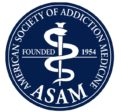Heroin Treatment
What is Heroin?
Heroin is an opioid drug made from morphine, a natural substance taken from the seed pod of the various opium poppy plants grown in Southeast and Southwest Asia, Mexico, and Colombia. Heroin can be a white or brown powder, as well as a black sticky substance known as black tar heroin. The drug enters the brain rapidly and binds to opioid receptors on cells located in several areas. In particular, areas involved in feelings of pain and pleasure and in controlling heart rate, sleeping, and breathing. Additionally, the National Institute on Drug Abuse (NIDA) reported that almost 1 million adults used heroin between 2015 and 2016.

Heroin addiction has a long list of effects, both physically and mentally. Heroin users who use the drug intravenously are at a particularly high risk of contracting a blood disease such as HIV and Hepatitis C. The recent boom in fentanyl makes the risk of overdose even higher than the already high likelihood. In 2016 along, approximately 25% of all overdoses in the United States were due to heroin. (Centers for Disease Control and Prevention).
Overcome Addiction Today
Heroin withdrawal is a very uncomfortable combination of symptoms, although not typically considered life-threatening. Body aches, cold sweats, hot flashes, and vomiting are some of the more common symptoms of withdrawal. People who try to detox at home on their own, often end up going back to the drug in order to alleviate the intense withdrawal symptoms. Therefore, professional assistance detoxing from heroin is strongly recommended. Royal Life Centers detox provides medication in order to make heroin withdrawal a much easier and manageable process.
Short Term Use
- Dry mouth
- Warm flushing of the skin
- Heavy feeling in arms and legs
- Nausea and vomiting
- Severe itching
- Clouded mental functioning, such as impaired judgment
Long-term Heroin Use
- Insomnia
- Collapsed veins
- Infection of heart lining and valves
- Constipation and stomach cramping
- Liver and kidney disease
- Lung complications
- Depression and antisocial personality disorder
- Sexual dysfunction and irregular menstruation
Royal Life Centers makes detox a smooth and effective process. Although heroin detox is not typically life-threatening, serious complications can arise. Therefore, we advise that it is best to be under the care of some of the best medical professionals in the industry during medical detox. We also administer medication to make the discomfort of withdrawals as minimal as possible. At Royal Life Centers, we follow a protocol to safely and comfortable detox our guests and then encourage them to move onto our residential inpatient program.
Signs of a heroin problem may include:
- Planning activities around heroin use
- Engaging in other high-risk behaviors
- Prioritizing drugs over other things
- Loss of interest in activities not involving heroin
- Lying or stealing to obtain more narcotics
- Withdrawal symptoms and/or cravings
If you recognize any of these signs in yourself or others, you may have a heroin problem and require medical help to safely detox.
Heroin Withdrawal Symptoms May Include:
- Restlessness
- Severe muscle and bone pain
- Sleep problems
- Diarrhea and vomiting
- Cold flashes with goosebumps
- Uncontrollable leg movements
- Severe cravings
Reach Out
Change your life with one call.
We can help.






